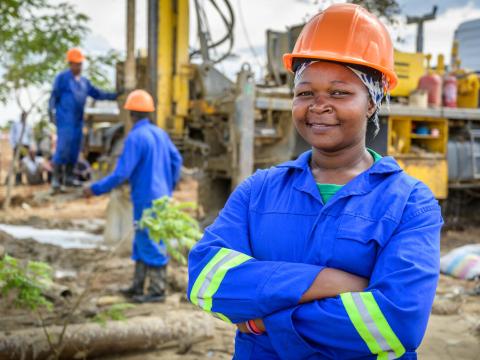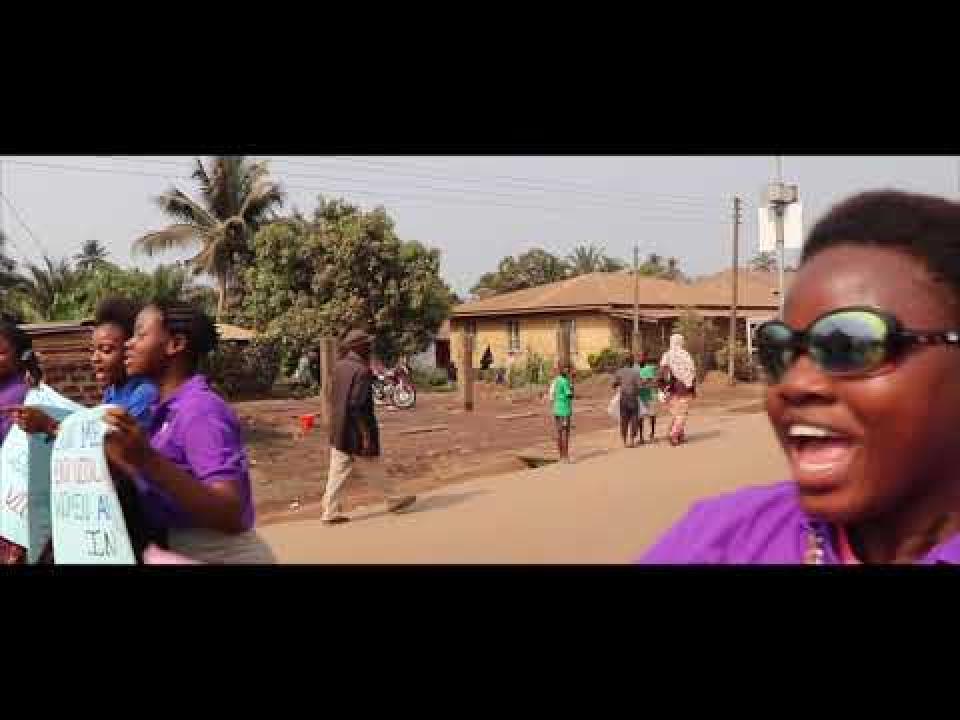
Break the Bias in WASH: Going Beyond for the Next Generation of Strong Women
Kristie and Lani share reflections around breaking bias and taking action in honor of International Women’s Day #IWD2022 #breakthebias.
Every person, no matter who they are, has some sort of bias that comes from their unique perspective and experience in life. Bias is the limited way we view and interact with the world, and is largely a result of what we have been taught and experienced. Recognizing the biases we hold and how they affect others is critical to living with empathy and understanding our perceptions and actions. All people also have bias blind spots – the tendency to see bias in others and ignore it in ourselves. Bias blind spots can exist at individual and organizational levels, which is why we think the #breakthebias theme for International Women’s Day is a key invitation for both individual and corporate reflection.
This theme aligns with one of the most challenging sayings of Jesus in the Bible in Matthew 7:3-4 (NIRV): “You look at the bit of sawdust in your friend’s eye. But you pay no attention to the piece of wood in your own eye. How can you say to your friend, ‘Let me take the bit of sawdust out of your eye’? How can you say this while there is a piece of wood in your own eye?”
Breaking the Bias within our organization
If we look closely, we might all see splinters in our eyes related to bias against women and girls, or other marginalized groups. We are thankful, however, to see intentional attention given to identifying and addressing these splinters of bias, which, in time, will help us all to see and address bias in a more transformative way.
World Vision has been working to address unconscious bias in individual staff mindsets, in operations, and in programs. Alongside efforts to support staff in recognizing bias at an individual level, the organization has also prioritized gender equality and social inclusion at a strategic level by investing resources and developing policies that clear barriers to promote greater diversity in our workforce and equity and inclusion in programs.
For instance, in the water, sanitation and hygiene (WASH) sector, which is historically male-dominated, I (Kristie) have often been one of a few (and sometimes the only) woman in the room during WASH team discussions. However, our leaders have been actively highlighting and addressing this lack of parity. For example, in 2019 World Vision conducted internal research to document challenges faced by our female WASH staff, determine suggestions for improvement, and make plans to actively remove barriers to women’s participation and leadership in the WASH team. Over the past few years, we are seeing more women joining the WASH team overall and in leadership positions.
Breaking the bias within our work
As we continue to remove these “splinters” of bias internally, we can now more authentically pursue empowerment of women and girls in our programming. Gone are the days when simply providing access to toilets and clean water and counting the number of women in the room during meetings, is enough to tick the “inclusion” box. We are committed to transformative WASH, which includes not only access and participation, but also a distinct focus on decision-making, supportive systems, and well-being for women and girls. We see this increased focus on transformative WASH in many of our programs, none perhaps more clearly than in our emerging Strong Women, Strong World: Beyond Access program, empowered by a transformative gift from Clean Water Here.
Starting in four countries, Guatemala, Honduras, Kenya and Zimbabwe, the Beyond Access program aims to integrate evidence-based WASH and economic empowerment interventions with a specific focus on removing multiple barriers that prevent the full thriving and engagement of women and girls in their societies, while also reinforcing essential supports to smooth the pathway to empowerment. We know women and girls are adversely affected by poor WASH, by lack of economic opportunity, by bias and stigma. Bias and stigma often inhibit access to knowledge and essential resources, and prevents women’s voices from being heard. This program seeks to tackle these multiple challenges, building in intentional learning through our learning partner Emory University, aiming for more transformative impact.
Power of Collaboration
Breaking bias and enabling empowerment is a collective effort, that must involve everyone – individuals, implementers, corporations, governments, researchers, and philanthropists – like Lani Dolifka.
Lani Dolifka is the founder of Clean Water Here, an organization focused on improving the world’s access to sustainable safe drinking water by raising awareness; supporting research and solutions; and advocating for underserved communities around the world. Clean Water Here, and Lani’s vision in particular, is what makes Strong Women, Strong World: Beyond Access possible. Lani also leads World Vision’s Strong Women, Strong World movement, which aims to empower women and girls to live safer, healthier, more productive lives. She shares her vision with us below:
“I am passionately committed to the meaningful and lasting empowerment of women and girls, and I am convinced that WASH and economic opportunities are essential pillars to empowerment. As an entrepreneur in the water space for 37 years, I understand the importance of clean water as well as the opportunities that business ownership provides. Women and other marginalized groups have been historically limited from full participation in society. They are also among those who are most adversely affected when WASH services are insufficient. I chose to invest in World Vision and the Beyond Access program because I want to mitigate poverty and promote environmental justice for women. I want to see this program become a building block for future philanthropic innovation.”
At World Vision, we are grateful for visionary partners like Lani Dolifka. She, and other philanthropists like her, are catalysts in #breakingthebias toward women and girls for a more equitable world, where all may thrive.
Kristie Urich is WASH Technical Director at World Vision US and Lani Dolifka is the Founder of Clean Water Here. Learn morea bout World Vision's Water Sanitation and Hygiene work here.
Main image: Liddah Manyozo, WASH Technical Advisor in Malawi, World Vision.

